Peace Watch » Editor's Take » Is Accepting Political Defeat A Way Out?
Is Accepting Political Defeat A Way Out?
Gimmickry and diplomacy are not and cannot be synonymous. Past week Pakistan President Asif Ali Zardari was in New Delhi. He had a luncheon meeting with Indian Prime Minister, Dr. Manmohan Singh. Ostensibly, it was a “private visit” but after Dr. Manmohan Singh invited him for a one to one meeting and sumptuous luncheon in Mogul, tradition it turned into what was described as an ‘accidental summit’.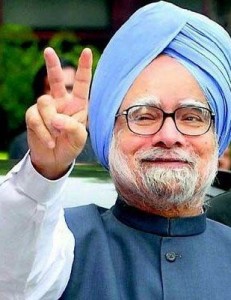
There was a lot of euphoria in a section of Pakistan English press about the visit. Some newspapers editorially hailed the visit and described the two countries as ‘fortunate’ for having ‘leaders who are committed to peace’. Some Pakistani peace activists working on India-Pakistan amity projects in their posts on the facebook not only sounded enthusiastic about the visit but also saw it as a ‘knockdown’ against what they describe as the “establishment”.
The visit has thrown up many posers for an average Kashmiri who has been watching India and Pakistan relations for past sixty-three years. His worrying about relations between the two countries has a reason. The relations between the two countries right from their birth as independent dominions have been affecting his life. Historical reality is that birth of the two countries from the womb of British India caused “temporary” partition of the state of Jammu and Kashmir and created eight hundred kilometer long line of confrontation between the two countries. It also ushered in an era of uncertainty in the region that unleashed death and destruction and opened floodgates of miseries for people living in the state. Not only has an average Kashmiri been asking the question, if it was faith, gimmickry, diplomacy, or something beyond that had brought Mr. Zardari to India but many Pakistani elite also continue to grope in dark about the reason behind the visit. Some Pakistani newspapers and senior analysts have been refusing the theory that the visit was all about paying obeisance at the Sufi shrine of Khwaja Moinuddin Chishti in Ajmer. Rightly, so they have been questioning high profile retinue of forty-two persons that included some ministers, Foreign Secretary and senior bureaucrats.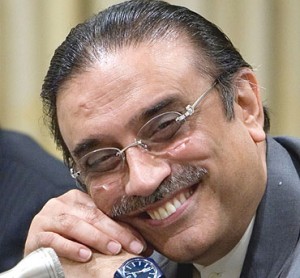
Stating that Zardari was known for staging ploys, seasoned Pakistan diplomat and former Foreign Secretary Shahmshad Ahmad in a article described his Ajmer pilgrimage as, “masterfully timed to divert the attention of his people who were beginning to pour out into massive streets protests against his government’s failure to control power outages and soaring prices.” Calling Manmohan Singh gesture of Mogul hospitality as ‘photo-op to create diversionary media stir putting everyone on both sides in guessing mode’ he seems convinced that the visit was diversionary move whatever his motivation or desired outcome.’ There is a lot more that is attributed to the visit but truth is that nothing visible happened at the luncheon meet and no new grounds were broken that could be counted as a major initiatives towards resolving the contentious issues between the two countries. The statement made by India Foreign Secretary after one to one talks between leaders of the two countries was indicative that the mistrust between the two countries persists despite lot of optimism in elitist Pakistan press.
Notwithstanding New Delhi asking him to come clear on issues like Mumbai attack and doing more I have no reason to disbelieve that President Zardari is relegiously perusing the Kashmir policy as he had envisaged an interview to Karan Thaper in 2008. To quote him:
“Kashmir issue should be left aside for future generations to solve and right now India and Pakistan should focus on improving the bilateral relations by strengthening trade and economic ties.” 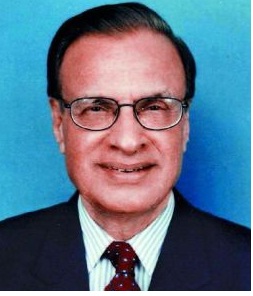
The two countries during past four years have made major strides in trade and commerce. Pakistan has finally accorded Most Favored Nation (MFN) status to India. On Friday, India opened doors for more trade with Pakistan by agreeing in principle allowing Foreign Direct Investment (FDI) from the country. The two countries have also agreed for the first time allowing opening of banks in their territories to facilitate financial transactions and ensure smooth trade. Pakistan in principle has agreed allowing India storage facilities for trading with Afghanistan. It has also agreed allowing India to trade with the Central Asian countries using its trade routes. Islamabad and New Delhi has decided to move beyond trade and are now looking for visa-free travel, and have constituted joint working group for the purpose.
Going by the newspaper reports emanating from the two countries there has been no substantive engagement between Islamabad and New Delhi on Kashmir except a ritualistically mentioning phrase ‘including Kashmir were discussed’ in the statements. Surprisingly the commerce ministries that have been having marathon sessions have not even discussed improving trading facilities along the LoC, despite these being counted as major CBM’s. The facilities stand where these were at the time of inauguration of the trade across the LoC.
This policy of putting Kashmir on freeze has ruffled some feather within Pakistan also. On Pakistan Foreign Minister Hina Rabbani’s interview to Hamid Mir of Geo TV, in which she had “categorically denied Pakistan was going to freeze Kashmir, it only having changed the road that leads to resolution of Kashmir”, former Pakistan Ambassador to UN Munir Akram wrote a long article in Dawn Karachi. Commenting on the statement that before accepting the logic that some issues like Sir Creak and Siachen were solvable, while 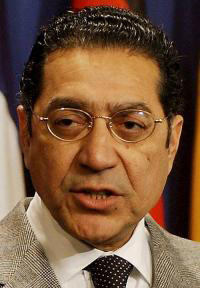 Kashmir and peace and security were not solvable thus need not be addressed at least at this time, he concluded “there was need to think more deeply that any dispute becomes ‘solvable’, either when the involved parties accept mutually accommodative concessions or compromises, or when one side in the dispute accepts military or political defeat.Hopefully, Pakistan has not accepted defeat; and compromises are possible on every issue of the
Pakistan-India dialogue agenda.”
Kashmir and peace and security were not solvable thus need not be addressed at least at this time, he concluded “there was need to think more deeply that any dispute becomes ‘solvable’, either when the involved parties accept mutually accommodative concessions or compromises, or when one side in the dispute accepts military or political defeat.Hopefully, Pakistan has not accepted defeat; and compromises are possible on every issue of the
Pakistan-India dialogue agenda.”
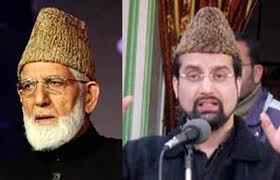 How far opinions like that of Munir Akram are going to influence the government in Islamabad is a big question. But such views throw up moot points for Kashmir leaders for debating and disusing collectively with open mind without fixing their eyes at on Islamabad and New Delhi.
How far opinions like that of Munir Akram are going to influence the government in Islamabad is a big question. But such views throw up moot points for Kashmir leaders for debating and disusing collectively with open mind without fixing their eyes at on Islamabad and New Delhi.
The article was published in Greater Kashmir on 16 April 2012
Filed under: Editor's Take · Tags: Kashmir, Kashmir Disputr, Kashmir Game, Manmohan Singh Kashmir, Munir Akram, Pakistan, Sheikh Abdullah. Nostalgia Kashmir, Z. G. muhammad, Zardar-Singh







